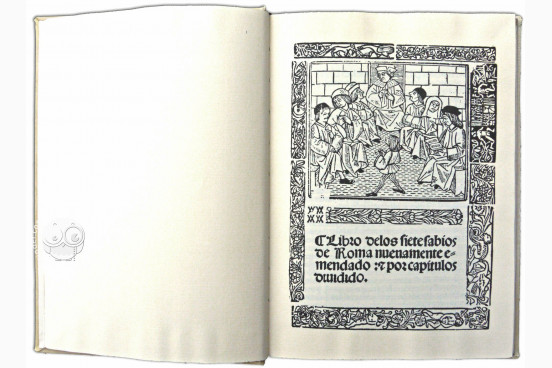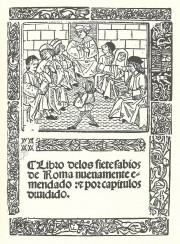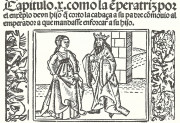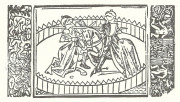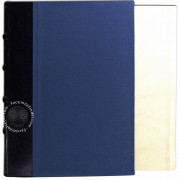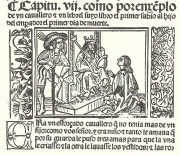This edition doesn't have typographical indications. The text, which was being read since medieval times, belongs to Sendebar occidental cycle, as it is well known, a very old collection of Indian stories and apologues, which must have been translated from Sanskrit to Persian, and from Persian to Arabic and to Hebrew.
This way several varied text traditions were created.
In the present edition, a version known as the Historia septem sapientum Romae, was probably written around 1330.
The history of this typescript in Spain has its origins precisely in this edition at the start of the XVI century and prolongs until the XIX.
The stories retold by the seven wise men have as their objective to show us the lies, deceitfulness, astuteness and perversion of women. They are light at heart, but not in its form, which is grave and indoctrinating.
The text concludes by telling us: "Siete fueron in Grecia los que sobre todos tuvieron excelencia en saber. Bias primense. Tales milesio. Solon de Atenas. Pitagoras militeno. Chilon lacedemonio. Periandro corintho. Cleobolo lidio. Los que estudiaron filosofia hasta el tiempo de Pitagoras fueron llamados sabios. E despues han sido dichos filosofos" (Seven went to Greece above all who were excellent… Those who studied philosophy until the time of Pythagoras were called wise. And later were called philosophers). And a Laus Deo: "A Dios sean dadas gracias" (God be thanked).
We have 1 facsimile edition of the manuscript "Libro de los Siete Sabios de Roma": Libro de los Siete Sabios de Roma facsimile edition, published by Vicent Garcia Editores, 2003
Request Info / Price
